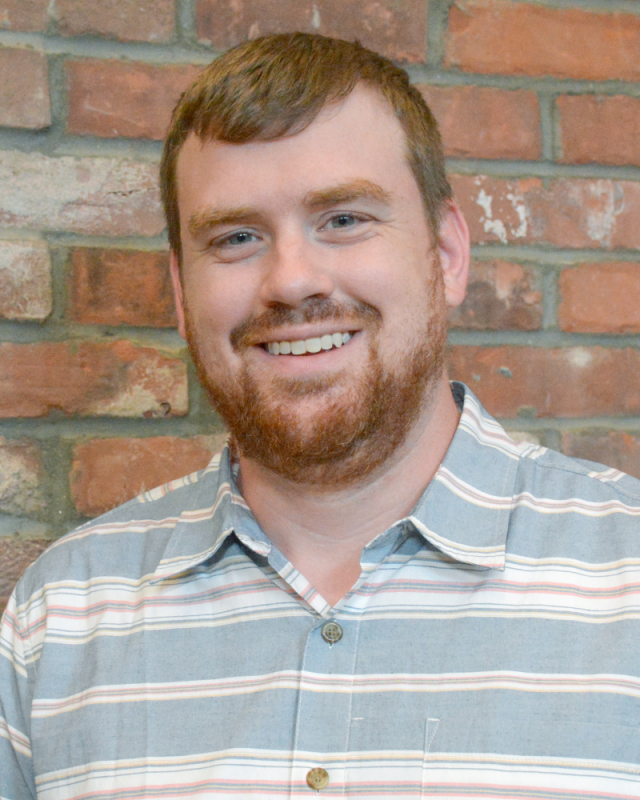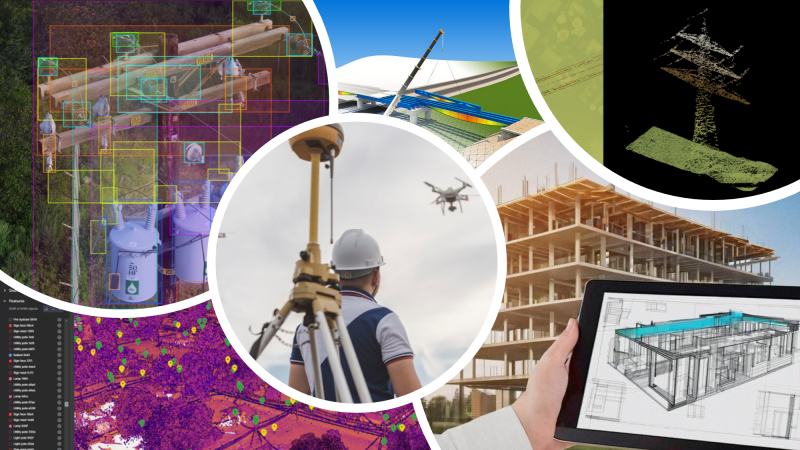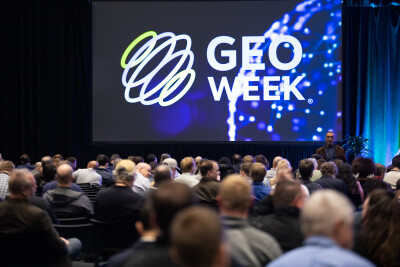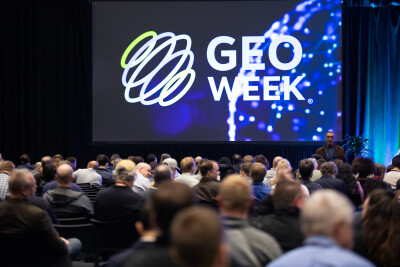As we start to roll through 2025, already almost a month into the year, it’s a natural time to reflect on the last few years of the geospatial industry as well as both the impact geospatial innovations have had on other industries and how other technological leaps have impacted the geospatial sector. And of course, there is no better place than Geo Week – being held February 10-12 in Denver – to hear about all of these innovations and speak with like-minded individuals about how they are taking advantage of the latest technologies. Recently, Geo Week News held a webinar entitled From Data to Decisions: How Geospatial and 3D Tools are Transforming Industries in 2025 to talk about the latest innovations in the industry and how leaders are thinking about new workflows.
This webinar featured a trio of speakers who will also be part of the Geo Week conference program, giving a bit of a sneak peek into what conversations in Denver will be like, and what some of the sessions will touch on. The webinar, moderated by Geo Week News’ Carla Lauter, touched on a number of different topics, including artificial intelligence, sensor innovation, and more, and how these speakers are utilizing automation and other innovations in their day-to-day work. The panelists for this webinar also represented different sides of the industry, including AEC, software providers, and service providers. The speakers for this webinar were:
Ben Stocker, Senior Construction Technologist, Skender
Russ Ellis, President, gNext Labs, LLC
Meagan Anderson, Senior Quality Manager, Dewberry
Below, you can find a bit more about the insights provided in the 60-minute conversation, and you can register for your free, on-demand recording of the whole conversation here. Additionally, you can register to attend Geo Week here, using the code WEBINAR100 to save $100 on a full conference pass.
It will likely come as little surprise that one of the most prominent topics of conversation throughout this discussion was artificial intelligence, or more broadly, automation. Any conversation about innovation for any industry is going to quickly turn to AI, and the geospatial industry is certainly no exception. All of the panelists acknowledged that the term “AI” can mean a lot of different things to different people today, but in this context, they were referring to mechanisms that allow for automating tedious and time-consuming portions of a project, such as detecting assets or defects within imagery.
The panelists discussed how they are automating some of their workflows today and how to encourage adoption within their firms. The main takeaway was acknowledging that AI has a negative connotation for many people worried about losing their jobs and showing how it augments current workflows rather than replacing the human element. Much of their work, from construction to surveying, is simply too important to completely trust automated workflows, so it’s important to emphasize the importance of human verification.
Ellis, whose company provides automated processes for inspections, talked specifically about embracing the change even when your instinct may be to stick with the way you’ve always worked.
“Embrace the change that's coming because right now one of the big challenges across all these industries is combating the mindset - it's always been done this way. There are new tools, there are new technologies, there's new capabilities, there's new skills. They really need to be embraced because this is very disruptive to a lot of industries. And embracing it is the best way to get close to it and to help adopt and make the adoption more rapid.”
While AI certainly played a driving role in the conversation, it wasn’t the only topic that came up. Anderson, for example, talked about how the improvement of sensor technology has significantly improved her firm’s work, particularly in mapping projects around shorelines. Additionally, Stocker talked about radiance fields, explaining what exactly they are – largely speaking about NeRFs and Gaussian Splats – and what they add to their workflow.
Of course, they also spoke about what they are looking forward to about attending Geo Week next month, a conversation that revolved around two major themes. One was the ability to see all of the cutting-edge technologies defining the industry today. Stocker even mentioned that he is using tools today that he first heard about at last year’s Geo Week. Additionally, they spoke to the importance of networking with like-minded industry professionals at events like this.
“The energy in the room [at Geo Week] is just palpable,” Anderson said. “It’s a great time to network, meet new people, and attend great sessions. I’m looking forward to it.”
This just scratches the surface of what was discussed in this webinar, and we certainly encourage you to check out the full conversation for free by following the link below.
Register for your free, on-demand recording here
Additionally, as a reminder, registration for Geo Week 2025, being held at the Colorado Convention Center February 10-12, is still open. Follow the link below and use the code WEBINAR100 to save $100 on your full conference pass.






